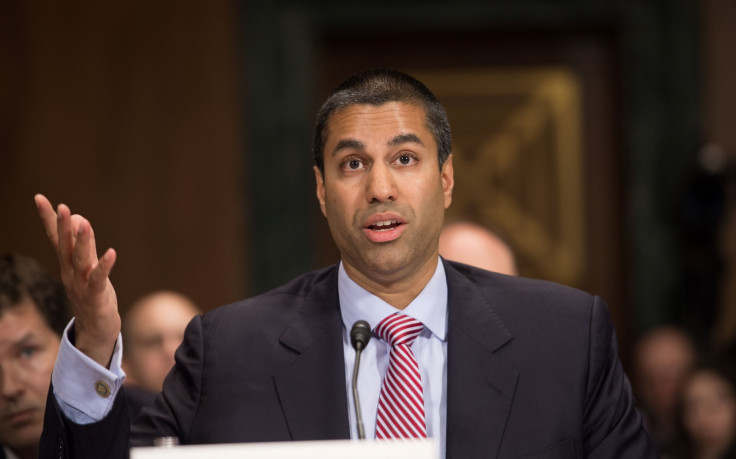US FCC chairman Ajit Pai proposes overturning Obama-era net neutrality rules
The move would likely weaken the government's regulatory powers over internet service providers.

Net neutrality rules in the US may soon undergo sweeping changes. US Federal Communications Commission's chairman Ajit Pai, appointed by President Donald Trump in January, has proposed reversing Obama-era net neutrality rules that prohibit internet service providers from giving or selling access to certain internet services over others.
The move would see the end of internet regulations, which were brought into effect in 2015 and were crafted to ensure that all online content was treated similarly by internet service providers. Reports suggest that the reversal of current net neutrality regulations would likely weaken the government's regulatory powers over broadband service providers, effectively leaving the industry to police itself.
"Two years ago, I warned that we were making a serious mistake. The more heavily you regulate something, the less of it you're likely to get," Pai said in a speech in Washington.
"Do we want the government to control the Internet? Or do we want to embrace the light-touch approach established by President Clinton and a Republican Congress in 1996 and repeatedly reaffirmed by Democratic and Republican FCCs alike," Pai continued. "Do we want to discourage the private sector from investing more in building and expanding networks? Or do we want to encourage more investment in online infrastructure and enable more Americans to have digital opportunity?"
Although Pai said he believes the rules lead to reduced investment by service providers and meant fewer American jobs, critics say that reversing the rules could adversely affect consumers. The New York Times reported the Internet Association, a group that represents tech giants such as Facebook, Google and others, as saying that the current rules work and that overturning the rules would "result in a worse internet for consumers and less innovation online".
"It would put consumers at the mercy of phone and cable companies," Craig Aaron, president of the consumer advocacy group Free Press, told the Times. "In a fantasy world, all would be fine with a pinkie swear not to interrupt pathways and portals to the internet despite a history of doing that."
Democratic Senator Edward Markey was quoted by Reuters as saying that Pai's plan to reverse the Obama-era rules would face a "tsunami of resistance".
However, telecom firms are in favour of Pai's proposals and have welcomed the announcement. "We applaud F.C.C. Chairman Pai's initiative to remove this stifling regulatory cloud over the internet," Randall L Stephenson, AT&T's chief executive said, the Times reported.
"It was illogical for the F.C.C. in 2015 to abandon that light-touch approach and instead regulate the internet under an 80-year-old law designed to set rates for the rotary-dial-telephone era."
However, privacy groups and tech start-ups are opposed to the FCC ending net neutrality. Over 800 tech start-ups, including Engine Advocacy, Y Combinator and Techstars wrote to Pai, asking that net neutrality rules not be reversed.
The letter reads, "Without net neutrality, the incumbents who provide access to the Internet would be able to pick winners or losers in the market. They could impede traffic from our services in order to favor their own services or established competitors. Or they could impose new tolls on us, inhibiting consumer choice.
"Rather than dismantling regulations that allow the startup ecosystem to thrive, we urge you to focus instead on policies that would promote a stronger internet for everyone."
Pai's new proposal faces several barriers before it can come into effect. On 18 May, the proposal will undergo an initial vote as well as face public comments, which could take several months. Pai has made a strong commitment to the plan. "Make no mistake about it: this is a fight that we intend to wage and it is a fight that we are going to win," he said.
© Copyright IBTimes 2024. All rights reserved.






